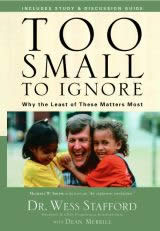Delivering Hope
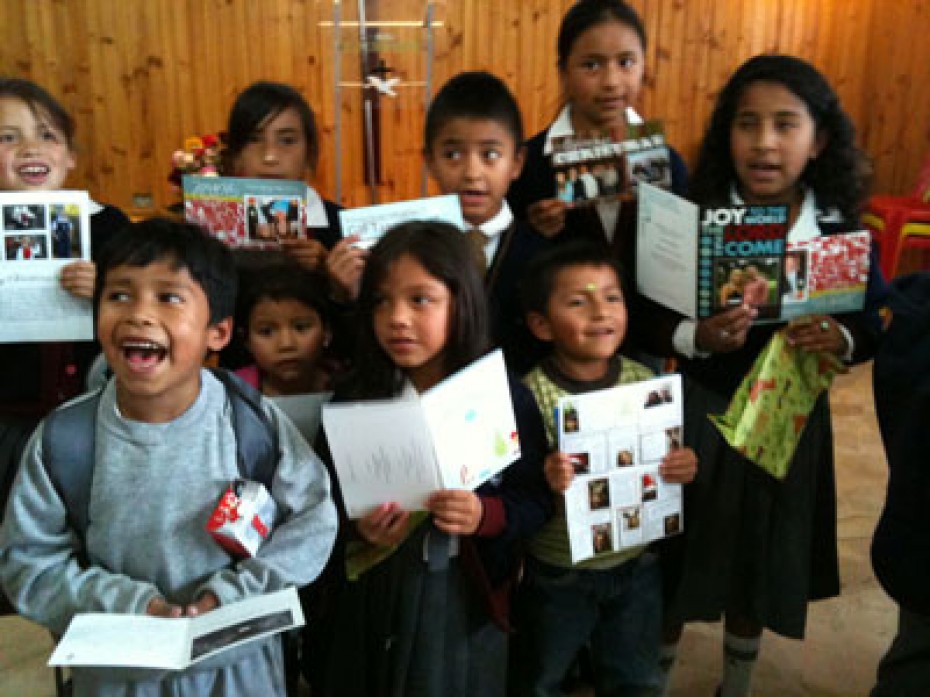
Sponsored children receive letters from their sponsors. Unsponsored children do not.
Andrea, one of the Compassion workers and our translator, told me that the only time there is a true distinction between a child who is unsponsored and a child who is sponsored is when letters are handed out. It’s a little bit like the unsponsored children are wearing scarlet letters.
Continue Reading ›Poverty Eradication: That’s a Tall Order
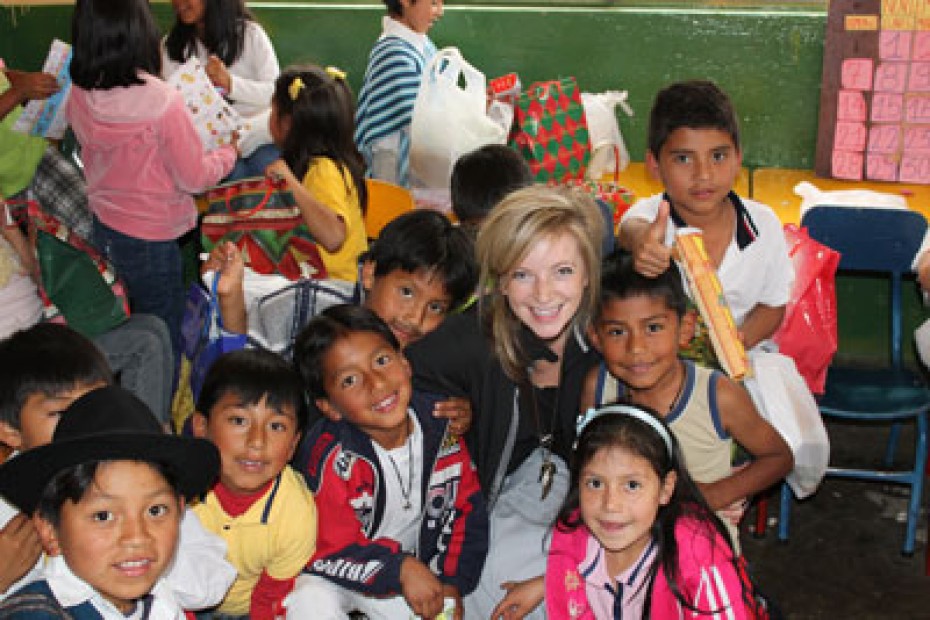
I think the volunteers at this center, the facilitator, the pastor and the director understand the importance of eradication. I know they rely on God for the victory, but I think your faithfulness and your commitment to your sponsored children is running poverty out of the minds and hearts of these children.
Continue Reading ›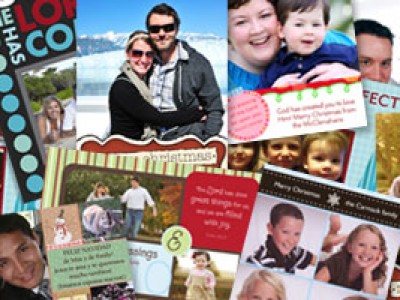
The Words We Carry
Your words are not just printed ink on paper. When I think of the cards I see a weapon that will be used by God. I see hundreds of hammers, in the shape of letters, shattering the lies of poverty. I see the grip of discouragement falling away from the children Jesus watches over.
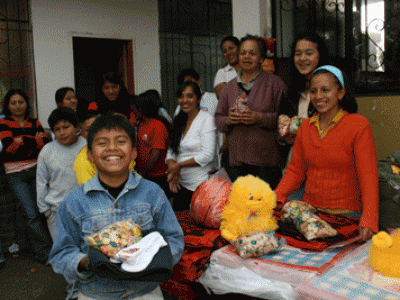
What Is Christmas Like for an Unsponsored Child?
“They wonder why they don’t get a letter or a card. Of course we explain the situation to them and tell them it’s because they don’t have a sponsor, but that’s not enough for a child. This is something that makes unsponsored kids feel very sad and even discouraged.” — Yovi de Racines, Secretary of Camino de Santidad Mission
Take a Step: Change Doesn’t Happen When You Stand Still
I’m still not quite sure how I made it to Phoolwari Child Development Center in Delhi’s Suraj Park slum, but perhaps one never understands the directions and way to the places that exist beneath the radar.
I remember looking out the window of the van and noticing the markets, the vibrant colors of the fruits, the beautiful sarees and then the almost instantaneous transition to a land devastated by waste and trash. A desperate look in the eyes of all the children, women and men crowded together in the hollows of the dirt pathways lined with small dirt and cardboard-built homes.
Suraj Park is one of Delhi’s largest slums, with more than 400,000 people living there. I traveled small dirt pathways littered with trash and waste. Children and older women stopped and stared as my group passed (literally squeezed) by them. I wondered if they too were trying to understand how I had made it to the slum.
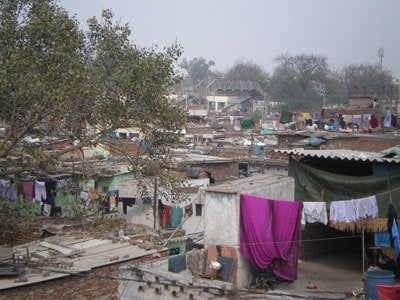
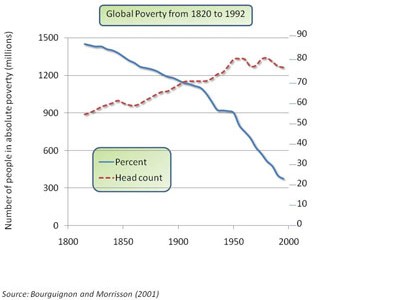
The Ability to Eliminate Extreme Poverty Is Just a Matter of Priorities
The Church’s ability to eliminate extreme poverty is just a matter choosing to do so. We used to say that 40,000 children under age 5 die every day of hunger or preventable diseases. Today, that number is 24,000. These statistics show that in 20 years the number of children who die every day of hunger or preventable diseases has been cut in half. Yet, the birth rate is actually going up. The population is increasing.
The Ability to Eliminate Poverty: Is It Just a Matter of Interpretation?
Is our ability to eliminate poverty just a matter of how we interpret the Bible? John 12:7-8 is the verse that has captured our thoughts as we think about the poor. The verse that is now the most remembered about the poor.
And yet, when Jesus spoke, he was not talking to us. His use of “you” was not intended to be directed at us. This reference, this statement, was very specifically directed at Judas.
Eliminate Poverty: Can We Do It or Not?
On the subject of eliminating poverty, how do we reconcile the seemingly conflicting messages of John 12:8 and Deuteronomy 15:4?
Love Thy Neighbor (in Action)
A teacher of the law walks up to Jesus while He is teaching and asks Him, “Of all the commandments, which is the greatest?”
Jesus says to love the Lord your God with all your heart and with all your soul and with all your mind and with all your strength. The second greatest commandment is to love your neighbor as yourself.
The teacher of the law responds to Jesus, agreeing with what He has said, and then in understanding also states that these two commandments are “more important than all burnt offerings and sacrifices” (summary of Mark 12:28-34).
I have found that this act of love, to love our neighbor as our self, is no mystery. It is the living, breathing body of Christ working within the power and capacity of the Lord. Hurting when others are hurt, rejoicing when others rejoice.
We walk forward and love with love that has been poured on us, our hearts made sensitive to the needs of those around us.
We are intricately connected, I believe more so than we even suspect. We are one body, the Bride of Christ, each one of us examples of Christ’s love.
I expound upon this for a reason; I recently heard a story at Compassion in a meeting that left such awe resonating in my heart. So much so that I went and hunted down the pictures, the full report,* and then I requested to share it with you.
It is an account of the body of Christ in action, the call to love our neighbor being fulfilled.
Breathing was extremely difficult and oxygen had to be administrated 24 hours a day. His daily life had to be overseen 24/7 and the worries of the medics grew day after day as Stuart had to struggle with an illness called subglottic stenosis.
Subglottic stenosis causes the throat to narrow and makes the breathing process complicated, and for Stuart restricts his life to 50 percent of normal capabilities.
Stuart has suffered from this illness since he was 3 years old, and as the doctors in Nicaragua examined his case, they realized that the appropriate treatment could not be done there but rather only in Europe.
Dr. Erick Castillo (Compassion Guatemala’s Health Specialist), worked closely with Dr. Nubia Figueroa (Compassion Nicaragua’s Program Implementation Manager) sharing reports about Stuart’s health status, and found in Guatemala a medic who could fulfill this surgery and suggested this new option.
Reluctantly, Stuart’s mom agreed to travel to Guatemala, but later regretted her decision and turned down her permission to let Stuart travel. Her fear was that this surgery leaves a small open hole in the patient’s throat for at least one year, depending on the alimentation and care that he is given.
Eventually, though, Stuart was able to travel to Guatemala and had this laser surgery that resulted in a successful outcome for his life!
Ingrid González (Compassion Guatemala’s Curriculum Specialist) opened her home doors for Stuart and his mother while he was recovering from this surgery, and along with Erick Castillo, treated him the very best they could by praying, giving encouraging words and striving to help them feel at home as they were in an unknown country.
Compassion Guatemala, through its Country Director as well as the local office’s prayer group and many of its staff, constantly monitored Stuart’s case to see how he was doing. Stuart received many gifts from the staff and was even taken to church and then to an outing by one of the staff members on a beautiful Sunday.
Stuart continues to thrive in life, and his health is continually improving since his surgery.
Dr. Castillo and Dr. Figueroa continue to oversee Stuart’s health by sharing mutual reports, since Stuart must return soon to Guatemala for his respective medical follow-up to make sure everything is all right, especially the small hole left in his throat.
Compassion Guatemala continues to advise our partners in Nicaragua to give Stuart proper support, from his student center to his home.
Stuart’s birthday was June 9, the first birthday that he did not spend in a hospital. What a beautiful thing!
The command to love our neighbor as our self is a great task but one that can result in victories … even in saving lives.
And let us remember how Jesus responded to the man who acknowledged the beauty of the command:
“When Jesus saw that he had answered wisely, he said to him, ‘You are not far from the kingdom of God.’” – Mark 12:34 (NIV)
*Stuart’s story was written by Samuel Llanes in the Compassion Guatemala office.
Beauty From Ashes
If you pick up a dictionary and thumb your way through the pages to find the word “genocide,” this is what you’ll read: “The deliberate killing of a large group of people, especially those of a particular race or ethnic group.”
We have that word in our vocabulary. And somewhere, at some point in history someone said, “What name will we have for the deliberate mass killing of people?” We needed a word for it because such a thing was taking place.
It completely unravels my nerves, but not as much as my ignorance does. In a lot of ways evil, for me, is something I have heard of. Something I have learned about. But for so many it is a memory, an experience. Some of those people live in Rwanda and have come intimately close to witnessing pure hatred.
My lack of knowledge took a back seat in college when I truly began to discover so many horrific events that I had heard of at one time, maybe on the news or seen as a headline, but was never thoroughly introduced to what had taken place.
I watched documentary after documentary, movies based on true events, read history books … I was like a sponge soaking it all in, attempting to wash away my ignorance, trying to grasp how such things had even taken place.
How can we be so capable of such evil? (more…)
Too Small To Ignore
“I learned in my childhood in Africa that a child may be born in poverty but poverty is never born in a child. The worst aspects of poverty are not the deplorable outward conditions, but rather the erosion and eventual destruction of hope and therefore dreams.”
Too Small To Ignore
Dr. Wess Stafford
Now that is an intense statement. One that requires reflection; allowing ourselves to read and re-read each word carefully, grasping at understanding.
Have you grasped it?
Even with my draw to aid children in poverty, I still struggle with getting it. I mean really getting it.
The Lord has taken me on many a great adventure. He has been my tour guide, my leader, even my travel buddy! And anyone who has traveled knows how important the buddy system is. 🙂
He gives me these glimpses into poverty, into what a majority of the world is faced with, and I dive into them with all my emotion, mind and heart. I studiously grapple with realities that are too surreal for me to comprehend.
I have seen immense lack of materials and absence of love, but I know I cannot rely on just experiences to fuel my passion. Especially when my desire is to do all things unto the Lord, and that can’t be put on hold when I’m just not feeling it.
But all is not lost. I simply read. That’s right … I am constantly reading. That person who is reading four books at one time … that’s me. I always have two books in my purse and even two journals. So, most times when I am in line or waiting somewhere I am either writing or reading.
I have come to see that my passion for social justice and my desire for reading are more intermingled than I realized. Reading helps me remember. It takes the disconnect I sometimes feel and lessens the gap.
For example, I read this from Too Small To Ignore (which was one of the four I was reading), (more…)
The Question Game
Warning: This post may be bit uncomfortable…
Before I sponsored my first child back in college, I had a lot of questions:
- Where is all my money going?
- Will this child actually know about me?
- Is she really the one writing these letters?
- Does she really need my money?
Wow! Those questions are somewhat embarrassing to write out, but I want to be honest with you. And honestly, the answers to those questions were about to dictate my opportunity to glorify God and bring hope to a precious little girl.
Since that time and over the years I have learned that I often ask the wrong questions, which can be a problem when I am looking for an answer.
Ever notice how Jesus would often answer a question with a different question? That is one of the reasons why I am so wondrously captivated with Him … His initiative to give us new understanding. He knows the answer but He also knows the question we need to be asking.
Our questions can be very critical to how we are living our lives and what we are putting our hope in.
I’m curious, what questions do you find yourself asking? Be honest, I won’t judge.
If you need a little nudge, I just so happen to have one.
This is Eric Timm. Listen to what he has to say.
You can also view the Question Game on YouTube.
Did you get that? Instead of continuing to ask, “Why is there poverty?” he is now asking, “Where are God’s people?”
This clip, which I saw awhile back, has challenged me to keep my mind focused on the things above when everything in me starts producing a list of questions.
Here is what I believe I should have been asking when it came to sponsorship (or my spending in general):
- Am I glorifying God with how I use my finances?
- Will I be faithful to encourage and support this precious child?
- Am I obeying God in how He has asked me to use His money?
- Do I really need all the stuff I think I need and spend my money on? And if I don’t, who does?
How is that for a dose of perspective? I think it is challenging but in a refreshing kind of way!
OK, here’s your cue. Remember those questions I wanted to know you were asking? Well, through this lens, what questions are you asking now?

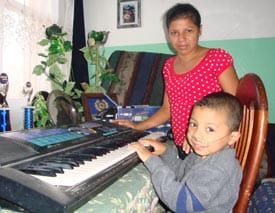 Reluctantly, Stuart’s mom agreed to travel to Guatemala, but later regretted her decision and turned down her permission to let Stuart travel. Her fear was that this surgery leaves a small open hole in the patient’s throat for at least one year, depending on the alimentation and care that he is given.
Reluctantly, Stuart’s mom agreed to travel to Guatemala, but later regretted her decision and turned down her permission to let Stuart travel. Her fear was that this surgery leaves a small open hole in the patient’s throat for at least one year, depending on the alimentation and care that he is given. 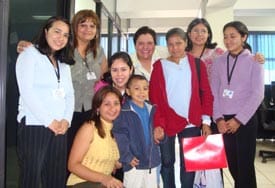 Compassion Guatemala, through its Country Director as well as the local office’s prayer group and many of its staff, constantly monitored Stuart’s case to see how he was doing. Stuart received many gifts from the staff and was even taken to church and then to an outing by one of the staff members on a beautiful Sunday.
Compassion Guatemala, through its Country Director as well as the local office’s prayer group and many of its staff, constantly monitored Stuart’s case to see how he was doing. Stuart received many gifts from the staff and was even taken to church and then to an outing by one of the staff members on a beautiful Sunday. 